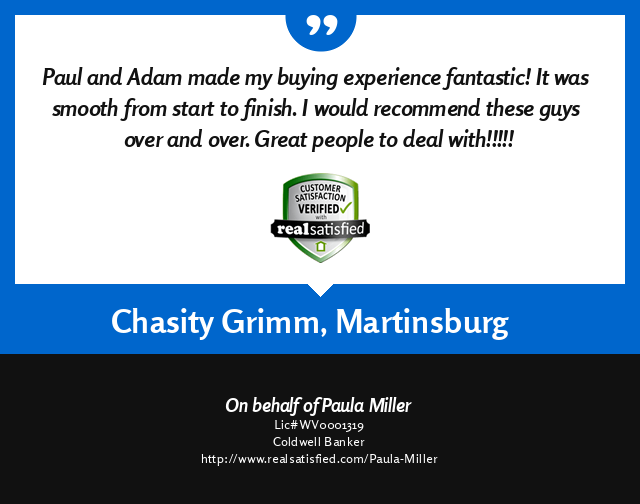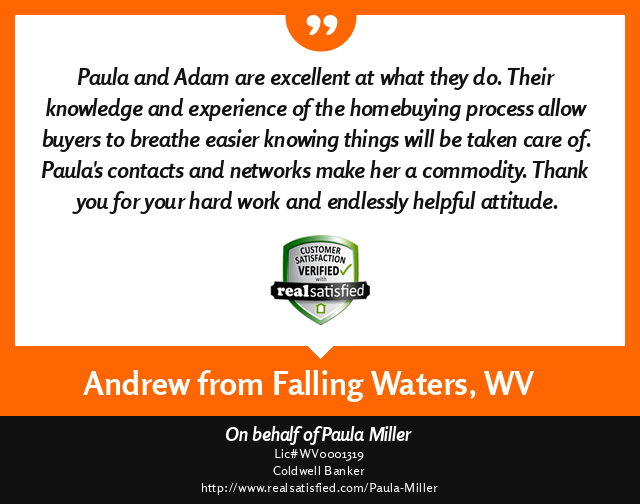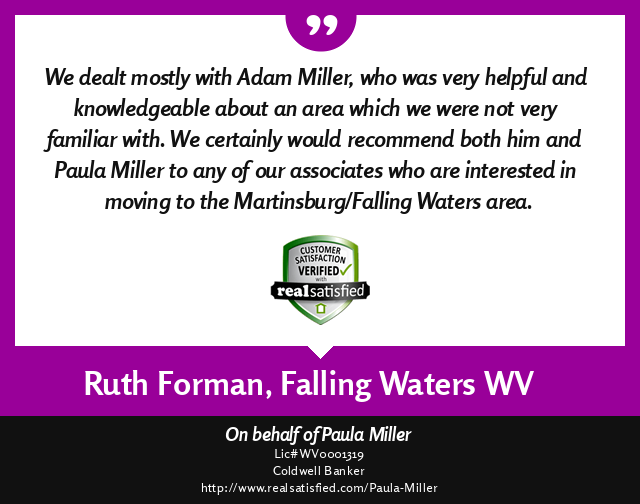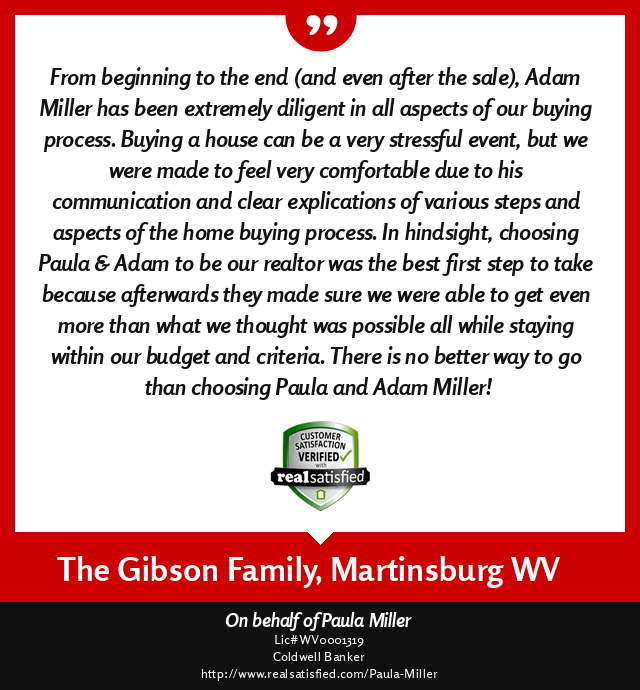Adam Miller | REALTOR®
First Time Buyer's Guide
|
Pre-Approval Process (1-4 days) |
|
1. Apply |
|
2. Submitting Needed Paperwork |
|
3. Meeting |
|
4. Signing Lending Disclosures |
|
5. Preliminary Processing (7 days) |
|
Processing (7-14 days) |
|
1. Reconciling Income and Assets |
|
2. Submit to Underwriting |
|
3. Preliminary Underwriting |
|
4. Appraisal |
|
5. Reconcile Loan with Lender and Insurer Guidelines |
|
5. Issues Conditional Loan Approval |
|
Final Processing (3-10 days) |
|
1. Collection of Final Loan Conditions |
|
2. Clearing of final Loan Conditions |
|
3. Submission for Final Underwriting |
|
4. Final underwriting |
|
Clear conditions (1-3 days) |
|
1. Final QC |
|
2. Issue “Clear to Close” or Final Loan Commitment |
|
Pre-Funding (2-4 days) |
|
1. Prep Closing Docs and Closing Instructions |
|
2. Reconcile and Approve HUD1 with Title Company |
|
3. Closing |
|
1. Execute Contracts |
|
2. Execute Final Disclosures |
|
3. Disburse Funds |
*If the loan is
USDA: After the “Clear Conditions” step
has been met the loan will be sent to USDA for issuance of
the USDA Commitment. Please allow 2-15
days for Virginia properties and 1-3 days for West Virginia properties. Once Commitment is issued you will move to
the “Pre-Funding” step.
Loan Approval
Guidelines:
When a lender looks at a
loan application package to determine if the loan should be approved, there are
five major areas that are evaluated. Each of these areas are explained below.
Since every loan program has its own guidelines, the specific requirements in
each of these applications will vary from program to program.
A.
Cash
Flow
- This is income versus
debts. Your income should be sufficient to cover monthly debts, family support
and your new house payment. The Real Estate Loan Profile provides a
computerized analysis of your cash flow in respect to several different loan
programs.
B.
Assets - You need to have enough money for the down
payment and the closing costs and should also have some extra cash left in the
bank to use in case of financial emergency. The money for closing can come from
various sources such as savings/checking accounts, gifts, or the sale of
assests (house, stocks, etc.)
C.
Credit - If credit has been established, you will have
shown credit worthiness and all monthly obligations have been met in a timely
fashion. However if you do have a credit problem, please call us, and we will be
glad to review it with you. Some credit problems have extenuating circumstances
which will allow for a loan to be granted.
D.
Job
Stability
- You will have
demonstrated job stability by having been in the same line of work, not
necessarily the same job, for as least two years.
E.
Property - The property is the security for the loan. An
appraisal is the tool used to determine the value and the adequacy of the
property, which must meet predetermined guidelines.
WHAT HAPPENS AT CLOSING
Much of the paperwork
involved in closing (or settlement ) is done by attorneys and title companies.
You may be involved in some of the closing activities and not in others,
depending on local customs and on the professionals with whom you are working.
Before you close on the
house, you should have a final inspection, or walk-through, to make sure any
repairs you requested have been made and that items which were to remain with
the house (drapes, light fixtures) are still there.
At the closing,
ownership officially is transferred from the seller to you. It may involve you,
the seller, the real estate agent, your attorney, the lenders attorney,
representatives from the title or escrow firm, and a variety of clerks,
secretaries, and other staff. It is possible to have an attorney act on your
behalf if you cannot attend the meeting (for example, if the house is in
another state). Closing can take as little time as an hour to sign all the
forms and transfer ownership or it could take several hours, depending on the
contingency clauses in the purchase offer (and any escrow accounts that may
need to be set up ). You will need to
bring 2 forms of ID to closing one of which must be a picture ID such as a
Driver’s License.
FINANCE AND LENDER
CHARGES
Appraisals. Lenders want to be sure the property is worth
at least as much as the mortgage. Professional property appraisers will compare
the value of the house to that of similar properties in the neighborhood or
community.
Credit report. Lenders will require a credit report on you
and your spouse or equity partner.
Document preparation
fees.
You will see an amazing
array of papers, ranging from the application to the acceptance to the closing
documents.
Preparation of
amortization schedule
.
Some lenders will prepare a detailed amortization schedule for the full term of
your mortgage. They are more likely to do this for fixed mortgages than for
adjustable mortgages.
Prepaid interest. Your first regular mortgage payment is usually
due about 6 to 8 weeks after you close (for example, if you close in August,
your first regular payment will be in October; the October payment covers the
cost of borrowing money for the month of September). Interest costs, however,
start as soon as you close. The lender will calculate how much interest you owe
for the fraction of the month in which you close ( for example, if you close on
August 25, you would owe interest for 6 days ).
Lender's mortgage
insurance
. If your down payment
is less than 20%, lenders will require that you purchase private mortgage
insurance (PMI) for the amount of the loan. This way, if you default on the
loan, the lender will recover their investment. These insurance premiums will
continue until your principal payments plus down payment equal 20% of the
selling price. The premiums usually are added to any amount you must escrow for
taxes and homeowner's insurance.
Release fees. If the seller has worked with a contractor who
has put a lien on the house and who expects to be paid from the proceeds of the
sale of the house, there may be some fees to release the lien. Although the
seller usually pays these fees, they could be negotiated in the purchase offer.
Escrow account. Lenders will often require that you set up an
escrow account into which you will make monthly payments for taxes, homeowner's
insurance, and PMI (mortgage insurance, if required ). The amount placed in
this escrow account at closing depends on when property taxes are due and the
timing of the settlement transaction. The lender should be able to give you a
close approximation of these costs at the time you apply for your mortgage
loan. If you put 20% down, you have the option to waive monthly escrow
collections. You may want to set up a special account on your own to make sure
you have money set side for these important and large bills.
THIRD-PARTY COSTS
Third-party costs are
expenses paid to others such as inspectors or insurance firms. You would have
to pay many of these expenses even if you paid cash for the house. Examples of
third-party costs are as follows:
Title Exam /
Opinion fee
. Attorneys usually
charge a flat fee or on an hourly basis to review the abstract and render a
clear title commitment--needed for title insurance..
Lender's title insurance. Even though there is a title search for any
obstacle (liens, lawsuits), lenders require insurance so that should a problem
arise, they can recover their mortgage investment. This is a one-time insurance
premium, usually paid at closing; it is insurance for the lender only, not for
you as a purchase. Although owner title insurance can be purchased.
Owner's title insurance. You may want to purchase title insurance for
yourself so that if problems arise, you are not left owing a mortgage on a
property you no longer own. A thorough title search (going back to 1900 if
necessary) is often assurance enough of a clear title.
Title Search /
Abstracting fee.
Done
to insure documents have been properly recorded and nothing has filed of record
that would prevent issuance of clear title policy.
Recording fees for deed pay for the county clerk to record the deed and
mortgage and change the property tax billing.
Survey. Lenders may require that the property be
surveyed to make sure that no one has encroached on it and to verify the
buildings and improvements to the property.
Inspections required by
lender
. (termite, water tests,
septic) If you apply for an FHA or VA mortgage, the lender will require a
termite inspection. In many rural areas, lenders will require a water test to
make sure the well and water system will maintain an adequate supply of water to
the house.
Closing Fee. Paid to Title Company to handle all documentation and coordination
of the actual closing or settlement.
Homeowner's insurance. Lenders require that you prepay the first
years premium for homeowner's insurance (sometimes called hazard insurance) and
bring proof of payment to the closing. This insures that their investment will
be secured, even if the house is destroyed.
Real estate agent's
sales commission
. The seller pays the
commission to the real estate agent. If one agent lists the property and
another sells it, the commission usually is split between the two.
OTHER UP-FRONT EXPENSES
The major portion of
other up-front expenses is the deposit or binder you make at the time of the
purchase offer and the remaining cash down payment you make at closing. In
addition to the deposit and down payment, other up-front expenses can include
the following:
Inspections. (structural, EMP) In addition to inspections
required by the lender, you may make the purchase offer contingent on satisfactory
completion of some other inspections. You and the seller will need to negotiate
these fees.
Appraisal fees. You may want to hire your own appraiser,
either before you sign a purchase offer or after seeing the results of the
lender's appraisal.
Money to the seller. (for example, for fuel oil in the tank) You
will need to pay for items in the house that you want and that were not
negotiated in the purchase offer. Such items may include appliances, light
fixtures, drapes, or lawn furniture and also fuel oil and propane left in
tanks.
Moving expenses. If you are changing jobs, your new employer
may pay for your move. Otherwise, you must figure in the cost of moving, either
truck rental and help or a professional mover. Shopping around for moving
services can pay off. You will also need cash for utility deposits (phone,
cable, and the like).
Escrow account funds. (for example, for cleanup, radon mitigation,
untested appliances) In the purchase offer, you can request that the seller set
up an escrow account to defray any costs of major cleanup, radon mitigation
procedures, house painting, or other items. Also, if you have not had a chance
to try out some appliances (the furnace if you buy in the summer or the air
conditioner if you buy in the winter), you may request an escrow account to
cover repairs if necessary.
Depending on the
purchase offer contract and contingency clauses, you may find you have some
expenses immediately upon moving in. For example, suppose your purchase offer
contract has a clause making the purchase contingent on a satisfactory
structural inspection, and the inspector determines that the house will need a
new roof. You could negotiate to have the seller arrange for the work to be
done, but this could delay the closing date--and you may have to agree to a
higher price for the house or to cover some of the expenses of the new roof. Or
you and the seller may be able to split the cost of a new roof, put on after
you move in, using estimates from a contractor of your choice, each of you
putting funds into an escrow account for the new roof. Or the seller may be
willing to reduce the sale price of the house by an amount you think is fair.
In either case, shortly after moving into your new home, you will need cash for
a new roof.
RESPA
The Real Estate
Settlement Procedures Act (
RESPA) contains information on the settlement or closing costs you are
likely to face. Within 3 days of the time you apply for the mortgage,
your lender is required to provide you with a
"GOOD FAITH ESTIMATE OF SETTLEMENT COSTS"
based on his or her understanding of your
purchase contract. This estimate should give you a good idea of how much cash
you will need at closing to cover pro-rated taxes, first month's interest, and
other settlement costs.
The act also requires
lenders to give you an information booklet, Settlement Costs and You, written
by the U.S. Department of Housing and Urban Development, which discusses how to
negotiate a sales contract, how to work with various professionals (attorneys,
real estate agents, lenders), and your rights and responsibilities as a home
buyer. It also shows an example of the uniform settlement statement that will
be used at your closing.
One business day before
you close, you are entitled to see a copy of the Uniform Settlement Statement with
your figures on it so you will know just how much the final cost will be.
TRUTH IN LENDING
Mortgage lenders are
required to give you a Truth In Lending (TIL) statement
containing information on the annual percentage
rate, the finance charge, the amount financed, and the total payments required.
For adjustable rate loans, the "total payments" figure is estimated
as a "worst case" scenario. The figure represents the payments you
would make if your loan adjusted upward to the maximum rate allowed by annual
and lifetime caps and then stayed there for the duration of the loan.
The TIL statement may
also contain information on security interest, late charges, prepayment
provisions, and whether the mortgage is assumable. If you have an adjustable
rate loan, it may outline the limits on the adjustments (annual and lifetime
caps) and give an example of what your next year's payment might be, depending
on interest rates.
Things NOT to do during
your Mortgage loan process:
Borrower(s) hereby commit to that until said mortgage loan is closed and funded the borrower(s) will not:
1. Open any new credit account such as credit cards, furniture accounts, or installment loans.
2. Borrower(s) will not change jobs without notice to Success Mortgage.
3. Borrower(s) will notify immediately Success Mortgage upon termination of their current job.
4. Borrower(s) will not allow inquiries to be pulled on their credit report.
5. Borrower(s) will notify Success Mortgage of any large deposits in bank account(s).
6. Borrower(s) will notify Success Mortgage of any change in income or job status.
7. Borrower(s) will not increase credit card balances or limits beyond initial disclosure of balances at time of application.
8. Borrower(s) will not co-sign for anyone.
9. Borrower(s) must disclose ALL debts such as privately held mortgages, child support/alimony and/or debts not yet reporting on credit report.
10. Borrower(s) must disclose if they are under contract for any other properties.
11. Borrower(s) must disclose ALL properties owned or in which they have ownership.
Please keep this for your reference during the Mortgage loan process.
First Time Buyer's Guide | Written by Adam Miller | www.adammiller.realtor
Coldwell Banker Premier Homes | Shepherdstown, WV






